Introduction
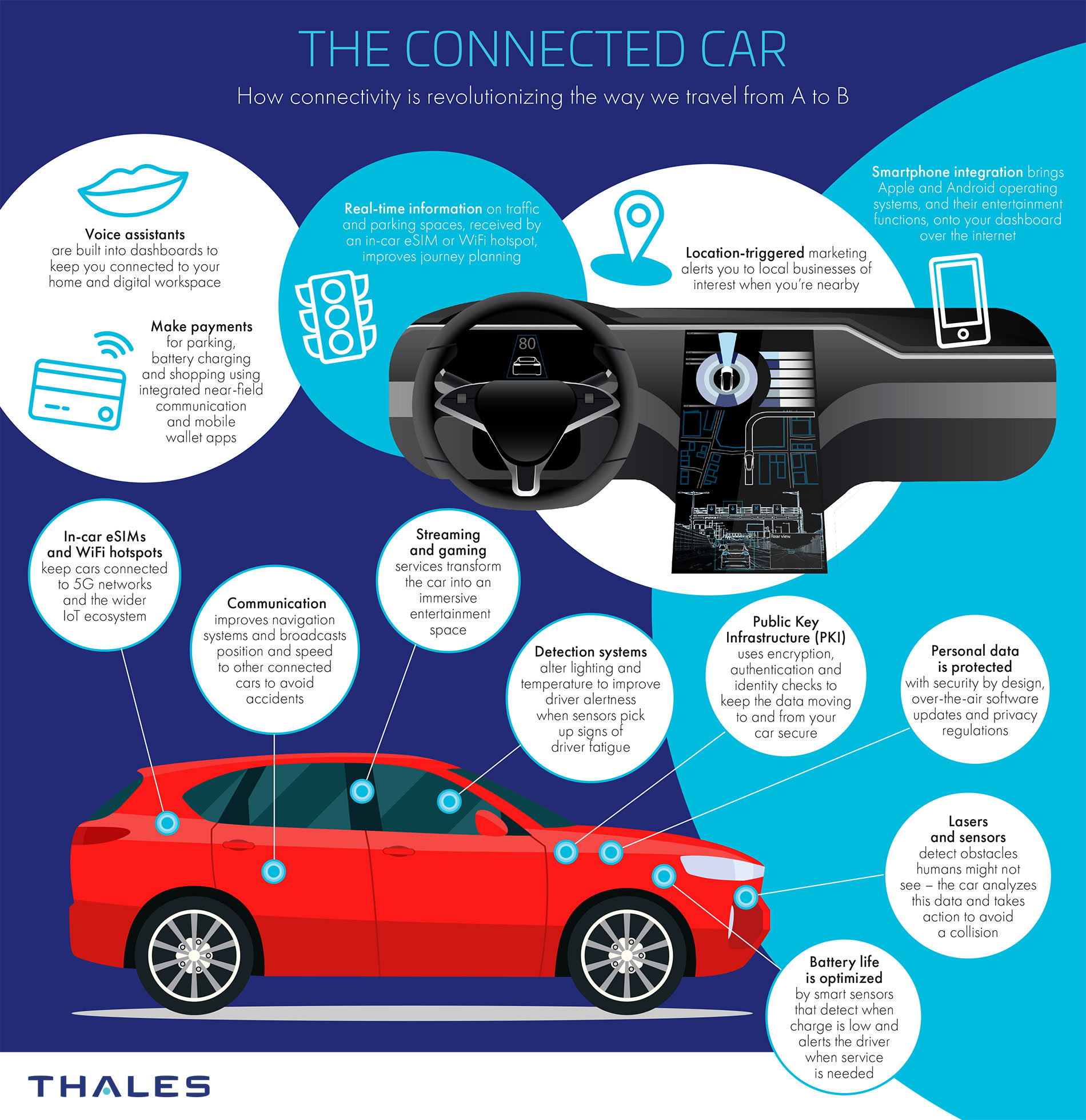
Connected cars have revolutionized the automotive industry by integrating advanced technology and connectivity features. However, the increasing prevalence of cybersecurity threats poses significant risks to the security and privacy of these vehicles. This blog explores the vulnerabilities in connected cars and highlights the importance of implementing robust security measures.
Overview of Connected Cars and Security Concerns
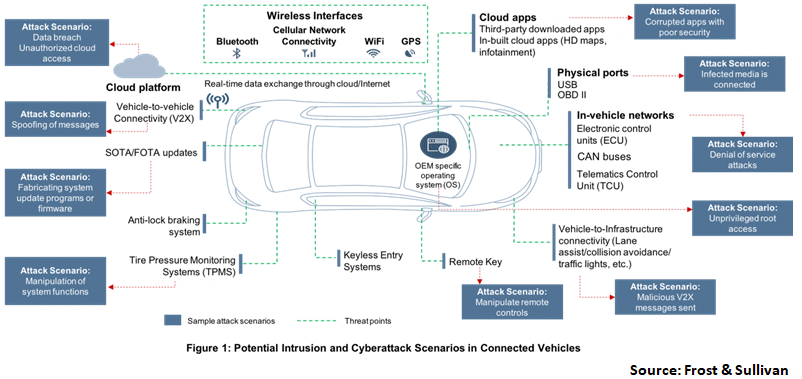
Connected cars, also known as smart cars, are vehicles equipped with advanced technology and connectivity features. While these features enhance convenience and functionality, they also raise concerns about cybersecurity threats and data privacy risks. With increasing connectivity and integration of software and hardware systems, hackers can exploit vulnerabilities in a connected car's network and potentially gain unauthorized access to critical vehicle functions and personal data. The security of connected cars is therefore of paramount importance to ensure the safety and privacy of both drivers and passengers.
Vulnerabilities in Connected Cars

Connected cars are susceptible to various vulnerabilities that can be exploited by hackers. These vulnerabilities include weak or outdated software, lack of encryption, insecure wireless communication protocols, and inadequate authentication mechanisms.
Cybersecurity Threats in Connected Cars
Connected cars are vulnerable to various cybersecurity threats, including remote hacking, unauthorized access to vehicle systems, and data breaches. Hackers can exploit these vulnerabilities to gain control over critical functions of the car, such as braking and steering, posing significant risks to the safety and privacy of drivers and passengers.
Data Privacy Risks Associated with Connected Cars
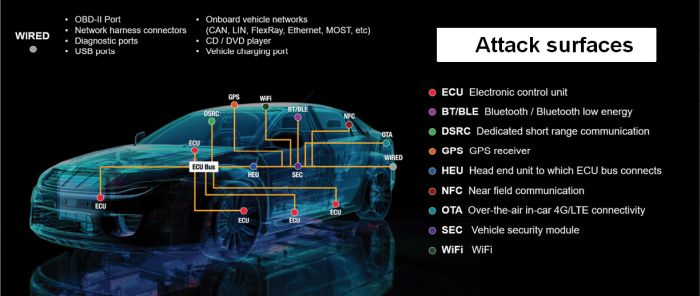
Data privacy risks associated with connected cars revolve around the collection, storage, and sharing of personal data. These risks include unauthorized access to personal information, potential breaches of sensitive data, and the potential for third parties to use this data for malicious purposes. To mitigate these risks, car manufacturers need to implement robust data protection measures and ensure that the data is encrypted, anonymized, and securely stored. Transparency and clear consent from users regarding data collection and usage are also essential for maintaining data privacy in connected cars.
Security Measures for Connected Cars

To enhance the security of connected cars, manufacturers must implement encryption and authentication protocols to protect data transmission. Intrusion detection systems should be installed to detect and respond to cyber threats.
Encryption and Authentication in Connected Cars

To enhance the security of connected cars, manufacturers must implement encryption and authentication protocols to protect data transmission. Intrusion detection systems should be installed to detect and respond to cyber threats.
Intrusion Detection Systems for Car Networks
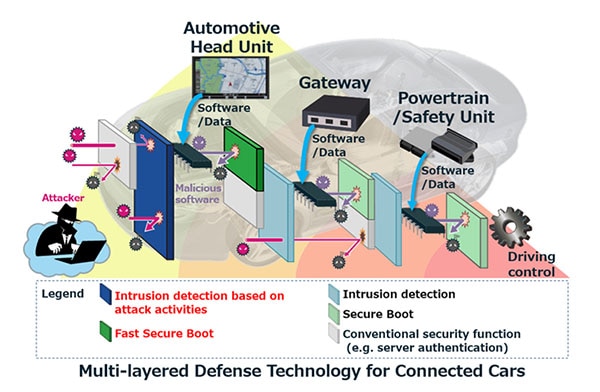
Intrusion detection systems (IDS) play a crucial role in enhancing the security of connected cars. These systems continuously monitor the network activity, analyzing it for any suspicious behavior or unauthorized access attempts. By promptly detecting and alerting the vehicle's owner or manufacturer about potential cyber threats, IDS help mitigate security risks and ensure the safety of connected cars.
Industry Standards and Regulations
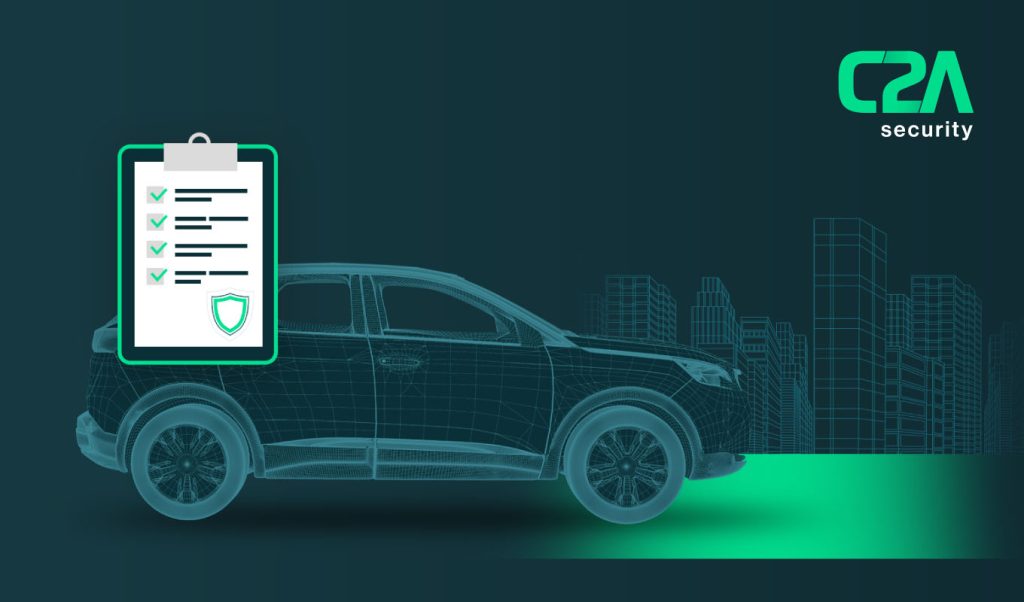
The security of connected cars is supported by industry standards and regulations. These provide guidelines and requirements for manufacturers to ensure the security and privacy of car networks. Compliance with these standards helps to establish a minimum level of security for connected cars and promotes the adoption of best practices in the industry. Some of the notable industry standards for connected car security include ISO/SAE 21434, which provides a framework for cybersecurity in vehicles, and the Automotive Cybersecurity Best Practices by the Alliance for Automotive Innovation. Additionally, regulatory bodies like the National Highway Traffic Safety Administration (NHTSA) in the United States and the European Union's General Data Protection Regulation (GDPR) have mandated certain security and privacy requirements for connected cars. These standards and regulations aim to address the evolving cybersecurity threats and ensure the safety of connected car users.
Current Standards for Connected Car Security
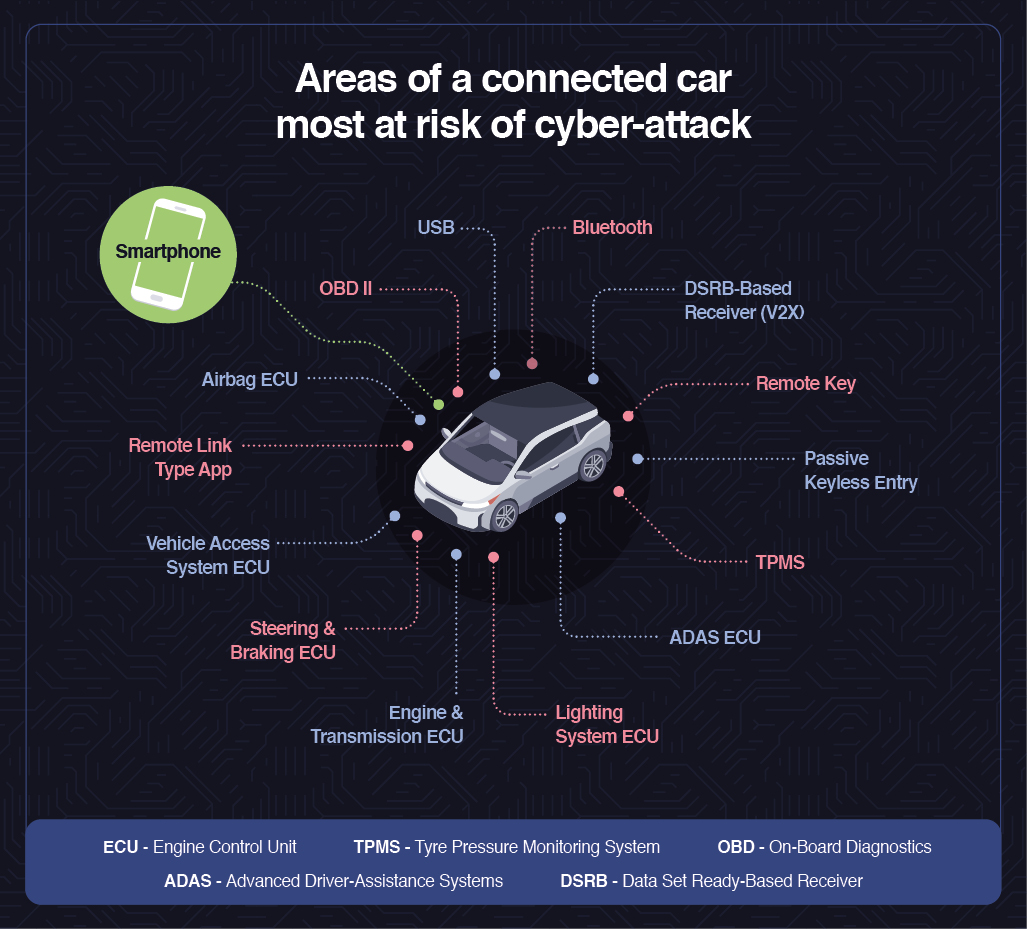
Current standards and regulations for connected car security include ISO/SAE 21434 and the Automotive Cybersecurity Best Practices. These standards provide guidelines for manufacturers to ensure cybersecurity in vehicles and promote best practices in the industry. Compliance with these standards helps establish a minimum level of security for connected cars.
Regulatory Frameworks for Ensuring Connected Car Safety

Regulatory frameworks play a crucial role in ensuring the safety of connected cars. Governments around the world are implementing regulations, such as the European Union's General Data Protection Regulation (GDPR) and the United States' Federal Motor Vehicle Safety Standards (FMVSS), to address cybersecurity and data privacy concerns in connected vehicles. These frameworks establish requirements for car manufacturers to comply with in order to enhance the security and privacy of connected cars.
Case Studies
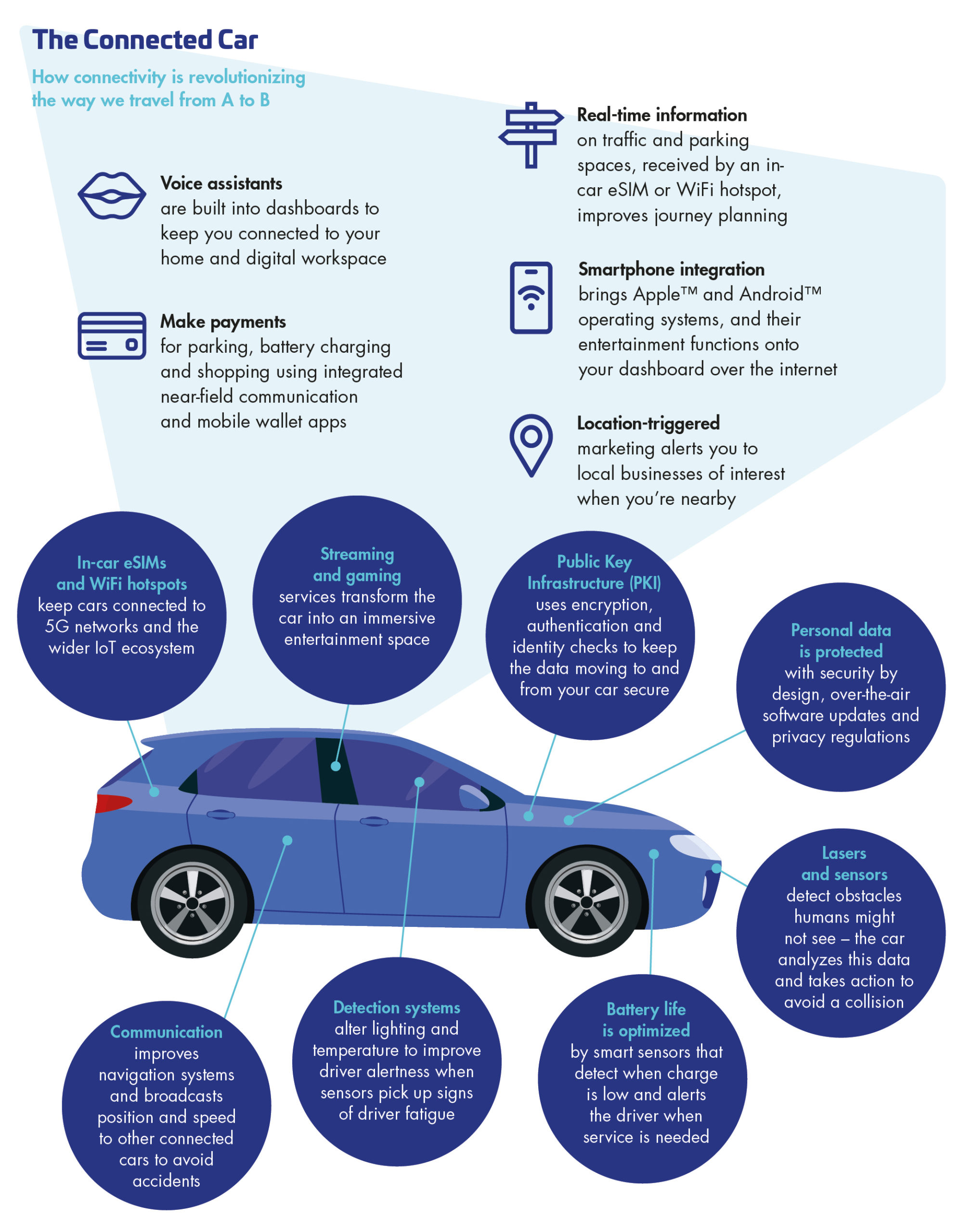
This section will explore notable case studies in the realm of connected car security. These case studies will highlight both cybersecurity incidents in connected cars and successful security implementations that have enhanced their safety.
Notable Cybersecurity Incidents in Connected Cars

In recent years, several notable cybersecurity incidents have highlighted the vulnerabilities of connected cars. These incidents have raised concerns about the safety and security of these vehicles and have emphasized the need for robust protection measures.
Successful Security Implementations in Connected Cars

Successful security implementations in connected cars have involved the integration of advanced technologies such as firewalls, intrusion detection systems, and secure communication protocols. These measures have shown promising results in mitigating cybersecurity risks and protecting vehicle and user data. Manufacturers have also implemented over-the-air updates to ensure timely security patches are applied and have established bug bounty programs for identifying vulnerabilities. These efforts demonstrate the industry's commitment to enhancing the security of connected cars.
Future of Connected Car Security
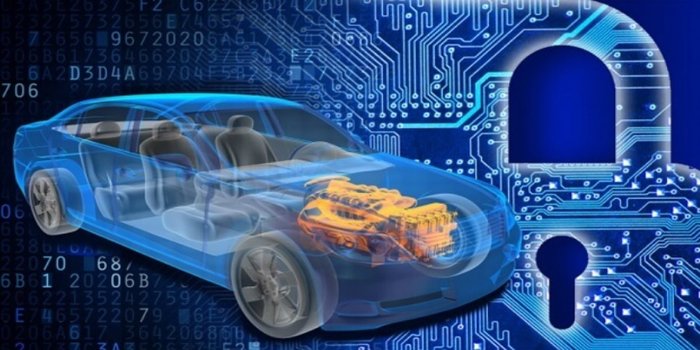
The future of connected car security lies in the development and implementation of advanced technologies like blockchain, artificial intelligence, and machine learning. These technologies can improve threat detection, anomaly detection, and real-time response capabilities, making connected cars more secure. Additionally, collaboration between automakers, technology companies, and cybersecurity experts will be crucial in establishing industry-wide standards and best practices for connected car security. With continuous advancements in technology and proactive efforts to address vulnerabilities, the future of connected car security looks promising.
Emerging Technologies for Enhancing Connected Car Security

Emerging technologies like blockchain, artificial intelligence, and machine learning hold great potential for enhancing connected car security. These technologies can improve threat detection, anomaly detection, and real-time response capabilities, making connected cars more secure. By leveraging blockchain technology, data integrity and privacy can be ensured, while machine learning algorithms can help identify and mitigate potential cyber threats. Additionally, artificial intelligence can be used to develop advanced intrusion detection systems that can monitor and protect the car network against unauthorized access. Implementing these technologies in connected cars will play a crucial role in securing the future of connected car transportation.
Challenges and Opportunities in Securing Connected Cars
Securing connected cars presents numerous challenges and opportunities. Some challenges include the complexity of car systems, evolving cyber threats, and the need for seamless collaboration among different stakeholders. However, these challenges also offer opportunities to innovate and develop advanced security solutions that can protect connected cars from potential risks. By leveraging emerging technologies like blockchain, artificial intelligence, and machine learning, the industry can enhance threat detection and response capabilities, ensuring the future of secure connected car transportation.